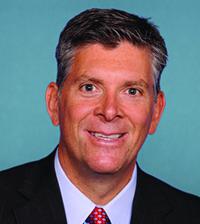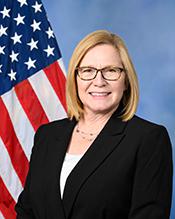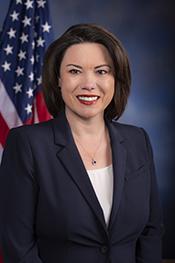0
0
0
Rebuild America’s Health Care Schools Act of 2024
12/30/2024, 1:23 PM
Summary of Bill HR 10225
Bill 118 hr 10225, also known as the Nursing and Allied Health Education Adjustment Act, aims to make changes to title XVIII of the Social Security Act in order to adjust allowable direct and indirect costs for nursing and allied health education programs. The bill seeks to address the rising costs associated with these programs and ensure that they are adequately funded to meet the growing demand for healthcare professionals.
Specifically, the bill proposes to increase the allowable direct and indirect costs for nursing and allied health education programs, which would provide more financial support for these programs. This increase in funding would help to cover expenses such as faculty salaries, equipment, and other necessary resources to ensure that students receive a high-quality education.
By adjusting the allowable costs for these programs, the bill aims to improve the overall quality of nursing and allied health education, ultimately leading to a more skilled and prepared workforce in the healthcare industry. This, in turn, would benefit patients by ensuring that they receive the best possible care from well-trained professionals. Overall, the Nursing and Allied Health Education Adjustment Act seeks to address the financial challenges facing nursing and allied health education programs and provide the necessary support to ensure their continued success in training the next generation of healthcare professionals.
Specifically, the bill proposes to increase the allowable direct and indirect costs for nursing and allied health education programs, which would provide more financial support for these programs. This increase in funding would help to cover expenses such as faculty salaries, equipment, and other necessary resources to ensure that students receive a high-quality education.
By adjusting the allowable costs for these programs, the bill aims to improve the overall quality of nursing and allied health education, ultimately leading to a more skilled and prepared workforce in the healthcare industry. This, in turn, would benefit patients by ensuring that they receive the best possible care from well-trained professionals. Overall, the Nursing and Allied Health Education Adjustment Act seeks to address the financial challenges facing nursing and allied health education programs and provide the necessary support to ensure their continued success in training the next generation of healthcare professionals.
Read the Full Bill
Current Status of Bill HR 10225
Bill HR 10225 is currently in the status of Bill Introduced since November 21, 2024. Bill HR 10225 was introduced during Congress 118 and was introduced to the House on November 21, 2024. Bill HR 10225's most recent activity was Referred to the Subcommittee on Health. as of December 17, 2024
Bipartisan Support of Bill HR 10225
Total Number of Sponsors
4Democrat Sponsors
0Republican Sponsors
4Unaffiliated Sponsors
0Total Number of Cosponsors
4Democrat Cosponsors
2Republican Cosponsors
2Unaffiliated Cosponsors
0Policy Area and Potential Impact of Bill HR 10225
Primary Policy Focus
Alternate Title(s) of Bill HR 10225
To amend title XVIII of the Social Security Act to adjust allowable direct and indirect costs for nursing and allied health education programs.
To amend title XVIII of the Social Security Act to adjust allowable direct and indirect costs for nursing and allied health education programs.
Comments

Wade White
466
11 months ago
Excited for the new bill!
Sponsors and Cosponsors of HR 10225
Latest Bills
ESTUARIES Act
Bill HR 3962December 13, 2025
Federal Maritime Commission Reauthorization Act of 2025
Bill HR 4183December 13, 2025
National Defense Authorization Act for Fiscal Year 2026
Bill S 1071December 13, 2025
Enduring Justice for Victims of Trafficking Act
Bill S 2584December 13, 2025
Technical Corrections to the Northwestern New Mexico Rural Water Projects Act, Taos Pueblo Indian Water Rights Settlement Act, and Aamodt Litigation Settlement Act
Bill S 640December 13, 2025
Incentivizing New Ventures and Economic Strength Through Capital Formation Act of 2025
Bill HR 3383December 13, 2025
BOWOW Act of 2025
Bill HR 4638December 13, 2025
Northern Mariana Islands Small Business Access Act
Bill HR 3496December 13, 2025
Wildfire Risk Evaluation Act
Bill HR 3924December 13, 2025
Energy Choice Act
Bill HR 3699December 13, 2025


